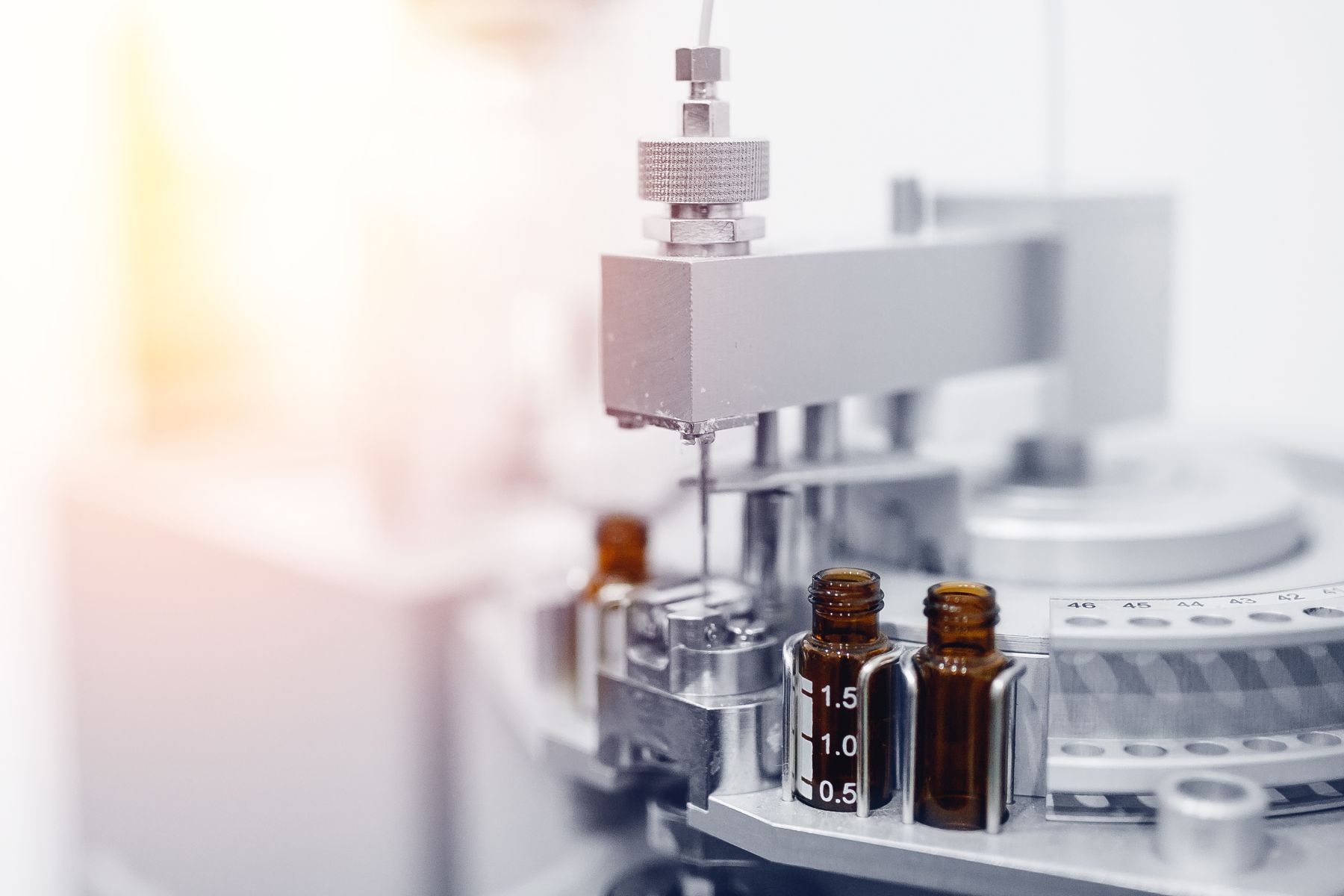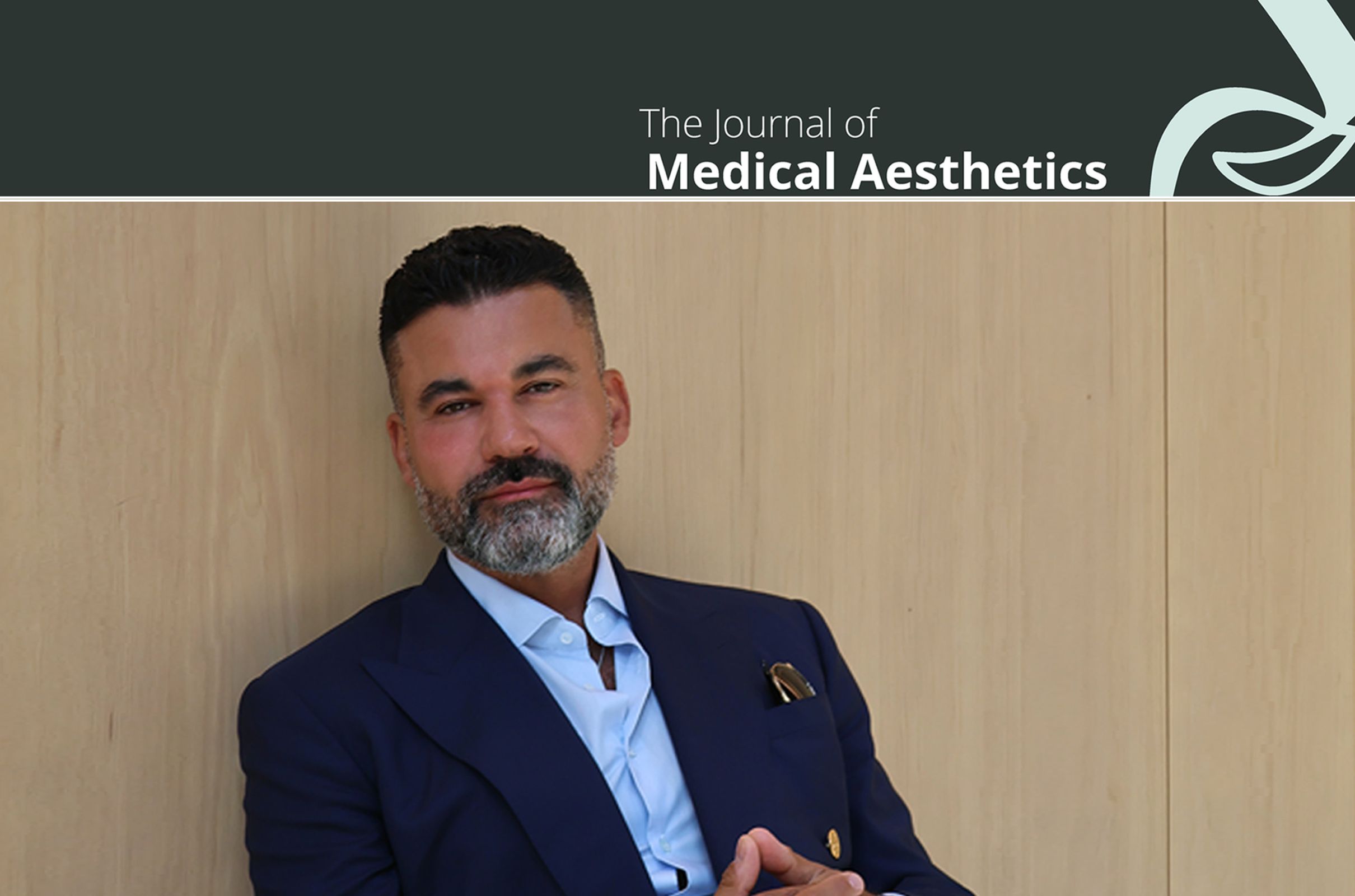Ross: Ario, thank you for making the time to meet with me. Let’s start with an introduction. On a professional and personal level, who is Ario Khoshbin?
Ario: My name is Ario Khoshbin, and I am the Founder and CEO of Prollenium Medical Technologies Inc. and a father of three sons.
Could you give an insight into Prollenium, where you're based and the number of employees globally?
Prollenium is headquartered in Canada, just north of Toronto. We have approximately 250 employees globally, with the majority based in Canada.
So, take me as far back as you can, when and where did you start your career and what have been the different steps on your career path to date?
I am 43 years old, and I started the company when I was 21 or 22. At that time, I was studying at York University, which is a suburban campus in Toronto. I lived at home during my university years. Growing up, my family was very entrepreneurial. We immigrated from Iran, and when we arrived here, my parents struggled to find jobs, they were always hustling to provide for our family.
At the age of 17 or 18, my father started a natural health clinic where he practiced acupuncture and other forms of natural medicine. He originally had a Ph.D. in chemical engineering but found it difficult to secure work, so he went back to school to pursue his passion for natural medicine.
Around the same time, my mother convinced him to allocate one of the rooms in his office for her to offer aesthetic treatments such as facials, manicures, and pedicures. Her business took off, and within a few years, she expanded to occupy the entire building, transforming it into a med spa. As an only child, I spent a lot of time listening to my parents' conversations and helping them with various tasks, particularly in marketing and website development.
Eventually, I started working for my mother, which marked my entry into the industry. During that period, laser technology had just emerged, particularly for hair removal. My mother was one of the first in Toronto to have a laser and offer treatments, so I witnessed her business “blow-up” during this time. This experience sparked my interest in the industry and served as my initial introduction. In my final year of university, I attempted to secure a job at a bank and other places, but I was consistently rejected due to being perceived as too ambitious. Consequently, my mother suggested I join her business.
I worked there for about six months, but given our similar personalities, we often clashed. Ultimately, I made the decision to venture out on my own and start my own company, specializing in the resale of aesthetic equipment. For about a year, I operated out of my parents' basement, cold-calling doctors' offices to determine their potential purchases. Initially, I didn't make many sales for about six or seven months. However, I eventually secured a distribution line from Laserscope, a California-based manufacturer of aesthetic laser systems. That moment marked the true beginning of my business as I began actively selling equipment and building my knowledge and expertise within the industry. Without the support of my family, particularly my mother, I wouldn't have been able to enter the industry or gain the experience necessary. That's how I got my start.
In terms of places and environments and the people around you, what was your environment like in those early years, and what did you take from them into your career?
The key point is to start somewhere, even if it means beginning at the bottom and working your way up while learning the industry. I was fortunate because I had a close connection to the clinical side through my involvement with my mother's business. I observed the emerging trends, and when I launched my own company, I had to handle every aspect myself due to financial constraints. This forced me to become a marketer, web designer, salesperson, and even write contracts. I developed our initial quality system as well.
So, my advice to people is to start somewhere, as that's the crucial point. Many young individuals aspire to become CEOs or founders right from the beginning, but they fail to understand that the founder's role often begins at the bottom, requiring them to undertake all the challenging and less glamorous tasks. Are they prepared to embrace those responsibilities? The journey is not glamorous initially and may take a significant amount of time.
What is the importance of facing challenges in the early days and how vital is the journey of creating a business?
When I started, I didn't anticipate becoming a manufacturer; I thought I would be selling laser systems. However, as you embark on the journey, unexpected paths and opportunities open before you, and being in the right place allows you to seize them. If you never start, those opportunities never reveal themselves. By working in the industry, you become aware of demands and needs, enabling you to tailor your business accordingly, just as in any other industry. When selling a product, if there is customer demand for something else, you strive to create a new product. This adaptability is crucial to keeping your business current and relevant. Unfortunately, many young people today want to skip the journey, which is actually the most important part.
When I reflect on my career, the most enjoyable moments were at the beginning of my journey when I had no money, setting up trade shows at 5 am, enduring sleepless nights, and not knowing where the next payroll check would come from. Although those times were stressful, they now serve as great memories, as overcoming those obstacles and challenges shaped our company. While achieving the desired results is fulfilling, it's the other experiences that truly teach you and shape who you become.
I once attended a concert where a musician mentioned spending the first 5 or 10 years of their career performing on street corners. Even the Beatles spent countless hours playing in dingy clubs, honing their craft because they couldn't secure gigs elsewhere. That's why, when they finally made it, they sounded incredible, having struggled, and played together for so long. The journey is just as important, if not more so, than the destination. One shouldn't attempt to skip those steps, as they are the ones that mould you into the leader you aspire to be.
If I were to give you a pill right now that would make you wake up tomorrow in the best shape of your life, you wouldn't appreciate the struggle and hard work required to reach that point and you would lack the discipline to maintain it. The struggle is just as vital as the accomplishment. Unfortunately, many young people in today's age of instant gratification expect to obtain everything quickly, but there is no substitute for perseverance and hard work.
What sort of values or principles do you live by?
I think it is crucial for young people, specifically young men, to have a value system to adhere to, regardless of what it is. It could be religion or perhaps the gym serves as their value system. The important thing is to have something that brings discipline.
Personally, I grew up in a Middle Eastern household where my parents escaped Iran due to our religious beliefs being suppressed. As a result, I was raised with strong faith as my moral compass. During my 20s, while many of my friends were engaged in drinking and clubbing, I prioritized work. I got married at 21 and became a father at 26.
I had a strong addiction to discipline, always having goals, plans, and aspirations in mind. I didn't allow distractions or illusions to hinder my progress. Despite facing challenges in various aspects of my life, including my marriage and raising children, the discipline instilled in me from an early age, combined with the desire not to disappoint my hardworking immigrant parents, kept me motivated.
I had a wonderful upbringing, and although I may not have been unhappy, I was driven more by curiosity and the need for purpose and meaning in my life rather than simply having a job and something to do.
Last year, every person in our company read a book by James Clear called 'Atomic Habits' which is around specific habits in our everyday lives either professional or nonprofessional. It's focused on the formation of habits, revealing practical strategies on how to form good ones and break bad ones. Are there any specific habits that you regularly adhere to in your personal life that are essential to your success in your professional life?
I think it doesn't matter what it is, as long as there's something that you can do on a daily basis or something that you get yourself up for in the morning. I've always loved exercising so that's something that for me is almost like a form of meditation. It’s one of the only times during the day that there's nobody around me and I have just me, myself and my thoughts and I can sit there and think... but not only about my business, everything else in my life.
I think those types of meditative things are really important for personal growth and development. It's almost like having that conversation with your inner self and being able to do that is important and that's something that's kind of under attack nowadays, because we're so connected to the workplace in a world where it's hard to be alone, when you have your phone with you and it's going off 24/7.
So, I think that it's really important to have those moments where you can just kind of collect your thoughts and bring yourself to account every day. Think about what you did and what you need to do the next day. Think about what you did wrong, what you need to do better. As a person, it's important to be able to have that routine.
Another thing that really drove me in my life was having children. A lot of people say having kids here can kill your career sometimes but my experience in life has been that the more I've had to do, the more disciplined I've become and the better I've been in managing my time. When I was at university, I was working and when I had kids, it focused me more as to what I wanted to accomplish in my life and the type of life I wanted to have and what I wanted to leave for them.
Also, what type of an example I wanted to set for my sons, do I want to get up and go to work every day and show them that I value those things in my life and be a good dad to them? That to me was an important thing that pushed me and having my boys really motivated me to work hard and give them a better life.
What is the importance of having a strong set of values and how does this keep you motivated?
I believe that having a value system is essential, regardless of one's belief in God. For instance, one of the greatest motivations in my life has been my staff. I consider them as family, and I am determined not to let them down. Consequently, going to work every day and ensuring that I can provide for them, and their families has become a powerful motivation for me.
Helping people has also become a significant driving force. I believe these aspects are integral to one's value system. Whether it involves giving back to the community, participating in clubs, or embracing personal beliefs, the value system should provide equilibrium, focus, and a reason to pursue one's actions. It should serve as the just cause behind one's endeavours.
Without such purpose, life becomes solely centered around the pursuit of money, leading to a miserable existence. I could retire at this moment, and I mention that not to boast but to emphasize that my love for what I do and the people I work with transcends monetary gains.
It's about building something remarkable and supporting all those who have supported me throughout my journey. For me, it's not about money; it's about creating something great and being there for those who have stood by me.
During any time throughout your life, has there been a specific experience or period of time that you would cite as being a significant challenge or ‘turning point moment’ that’s changed your views or your approach on leadership or life itself?
Yes, I believe that's an excellent question. I often reflect on it, and I think both men and women, but particularly men, experience this feeling in their mid-30s where they have a strong desire to accomplish something, otherwise they may feel a sense of purposelessness. It becomes a primary motivator to contribute in some meaningful way. It's inherent in human nature to want to be useful, to create, and to make something of our lives. So, when men reach their mid-30s, they often go through a transformative period where they introspectively look back on their lives and assess whether they have achieved the things they desired. Some people might label this phase as a midlife crisis, but it's actually a time of self-reflection and evaluation of one's accomplishments. For me, personally, when I reached that point in my life, I had already come a long way.
It was around the same time that my second son was born and subsequently diagnosed with autism. This news came as a devastating blow because I had always believed that I could meticulously plan and adapt every aspect of my life.
However, life has a way of showing us that there are certain things beyond our control, and we must learn to find contentment within those circumstances. This experience was truly eye-opening for me. Although I initially viewed it as a punishment and was filled with worry and sadness for my son, I now recognize it as a tremendous opportunity for personal growth.
It taught me the importance of finding contentment in aspects of life that cannot be changed. This newfound perspective also influenced my approach to business. I realized that while I had always pursued my goals with relentless determination, sometimes it is crucial to embrace the flow of life and be more accepting of the way things unfold. These realizations could only have been prompted by the experiences that force us to confront our deepest beliefs and values.
For me, the journey through autism with my son became a defining moment. From a business perspective, I have encountered numerous challenges and obstacles along the way, but most of them could be overcome through hard work and by hiring capable individuals. However, the situation with my son's autism was different. There was nothing I could do to fix or change it. It was a circumstance that I had to accept. But within that acceptance, I found immense opportunity for personal growth. It compelled me to question my beliefs about faith and life, and ultimately led me to where I am today.
What's been the highlight or the thing that you look back on as a big achievement or the thing that you're probably most proud of form your journey with Prollenium?
There have been several pivotal moments where we faced the possibility of going out of business, but interestingly, those were the very opportunities that led to the subsequent significant growth of our company. When I initially ventured into the field of fillers, I lacked the financial resources to establish my own facility. Instead, in 2005, I resorted to white labelling a product from Germany. It was in the late months of 2004 that I finally obtained the necessary approvals for distribution in Canada. While the product had the CE marking, indicating its compliance with European regulations, it was an existing product. At that time, the dermal fillers industry was like the Wild West, with numerous companies selling all sorts of questionable substances. Unfortunately, the product I was white labelling turned out to be of abysmal quality, causing delayed and unsanitary reactions. This predicament placed me at a crossroads: either consider closing down the business or find a way to address the issue. It was these very hardships we encountered with the subpar product that propelled us towards engaging in our own research and development endeavours.
We made the decision to establish our own factory and take control of the entire production process. In essence, we transformed a failure into an opportunity for growth. Such instances exemplify the nature of entrepreneurial pursuits, where setbacks often serve as fertile ground for remarkable opportunities. While these moments may initially appear devastating, they ultimately present chances for adaptation, change, and personal and business growth. Life is replete with such trials and tribulations, and it is through overcoming testing circumstances that we find our greatest potential for progress. This principle holds true not just in life but also in the realm of business.
Who were your heroes or people of inspiration growing up and starting your career?
The early influences in my life were remarkably simple yet profound. I had the privilege of working at my uncle's corner store in Toronto during my formative years. He was an extraordinary individual who not only introduced me to the world of business but also taught me invaluable lessons on how to engage with customers. His unwavering compassion and love for the people in our neighbourhood left a lasting impression on me. Despite having numerous reasons to patronize other grocery stores with lower prices, the community consistently chose to return to him, drawn by his genuine character.This experience instilled in me a profound understanding of the significance of relationships in the realm of business.
I came to realize that sales are fundamentally built upon cultivating meaningful connections. Later on, my mother's business provided me with further insights. Similar to my uncle, people flocked to her establishment because of the genuine care and affection she showered upon her customers. Witnessing the impact of prioritizing the customers' well-being and genuinely wanting what is best for them, I recognized that merely offering a great product is insufficient. It is the cultivation of these deep relationships that truly matters. During my younger years, our school organized Terry Fox runs, and I vividly recall being awe-inspired by this remarkable individual. Despite losing a leg to cancer, he exhibited unwavering dedication as he embarked on a courageous journey to run across the country of Canada. Each year, we engaged in fundraising activities in honour of his remarkable endeavour. It is through witnessing such displays of resilience and determination in the face of adversity that I learned how hardships in life can propel individuals to accomplish extraordinary feats.
Everyone seems to have a mentor these days. Who would you say has been a mentor to you and played a pivotal role in your career so far?
One of my best friends has been working with me since about a year after I started the company. His name is Khasha. We have been business partners for 20 years, and it has been amazing to have someone who complements me so well. I am a very optimistic person and tend to see every idea as a good one. Having someone in the office who balances that with a realistic approach is valuable. Many entrepreneurs need someone like that because it's easy to invest in unrealistic ideas. Having an operator realist like Kasha has been beneficial. We have a great working relationship, and I couldn't have achieved any of these things without him.
What is the purpose that you give to the industry and the world, what is your ‘why’?
It's a challenging question to answer because it's easy to simply say that we aim to create the best dermal filler or beauty products in the market. However, the more I've been involved in this industry, the more I've come to realize that our purpose extends beyond that.
One of our driving forces is the incredible team of individuals I work with, who have contributed so much to building this amazing organization. Another significant motivation came about six years ago when I underwent a laser treatment that resulted in a severe burn on my forehead. It was a transformative experience as it shattered my confidence, making it difficult for me to interact with others or feel comfortable in social situations. It was the first time I truly understood the challenges faced by individuals who have insecurities related to their appearance, whether on their face or body. It made me realize the importance of addressing the serious impact this can have on people's mental health.
Ultimately, our mission is to help individuals become better versions of themselves. It's not just about enhancing physical features like plumping lips or augmenting cheeks; it's about empowering people with the confidence to face the world. We understand that this world is far from easy, and there is an abundance of suffering. Our goal as a company is to make life a little easier for individuals by alleviating some of their insecurities. I have witnessed numerous cases where individuals with facial disfigurements have found relief and improved their lives through the use of 'HA' and related treatments, enabling them to secure employment opportunities they previously couldn't.
Additionally, we are currently conducting a study on individuals who have experienced limb or finger amputations and have been unable to return to work due to the pain in their fingertips. By injecting a small amount of HA into their fingertips, we are helping them regain their ability to work. At the end of the day, our driving force is our genuine care for people and the desire to make a positive impact in their lives.
In this ever-evolving space of medical technology, digital health, social media, What do you think are going to be the big developments in the next five years, impacting the market or the lives of the consumer?
In our industry, aesthetic physicians and practitioners are constantly pushing the boundaries and exploring new applications for these products. Every day, I hear about doctors injecting or discovering something innovative. This ongoing innovation will continue to drive growth not only in facial indications but also in body treatments. I believe that the accessibility of HA will become more widespread, allowing a greater number of people to benefit from these treatments. Currently, the number of individuals receiving these treatments remains relatively low, indicating significant room for growth in the coming decade. This growth will be particularly evident as more individuals enter old age and seek ways to maintain a youthful appearance.
However, it's important to note that the industry is evolving. We are beginning to see indications of use expand and more people entering this field, resulting in increased market penetration and acceptance. Nevertheless, I've observed that the initial phase of fillers was marked by excessive treatments leading to an overinflated appearance, often referred to as the "balloon face." The next era of aesthetics will emphasize a more subtle approach, promoting proper and responsible usage of these products. As companies, it is our responsibility to provide practitioners with accurate guidelines and best practices.
Irresponsible practices, such as recommending excessive amounts of fillers, can lead to unfavorable outcomes that tarnish the reputation of the industry. We aim to educate and promote best practices so that everyone can benefit from the advancements in our field. Additionally, as the industry evolves, we anticipate a decrease in cost barriers, allowing more individuals to participate in these treatments. Ultimately, our goal is to create an industry where best practices are upheld, accessibility is improved, and more people can enjoy the benefits of aesthetic enhancements.
What’s next for Prollenium? What do the next few years look like in terms of exciting milestones and developments?
We are now entering an era focused on bio stimulators, aiming to stimulate the body's natural collagen production and combat aging. This shift will bring forth the use of different materials that can enhance the face without solely relying on filling techniques. We are entering a phase where individuals seek to improve their appearance without drastic changes. Therefore, we are exploring products that hydrate, stimulate the skin, and provide subtle lifting effects. For instance, in addition to neurotoxins, we anticipate the emergence of more fillers, bio stimulants, and products designed to address wrinkles, competing with neurotoxins for market share. The emphasis is on aging gracefully and achieving natural-looking results. As an industry, we are driven by results and scientific advancements.
The US FDA plays a crucial role in ensuring that products must demonstrate their efficacy before being marketed to the public. This focus on scientific evidence and proven outcomes contributes to the credibility and success of our industry.











